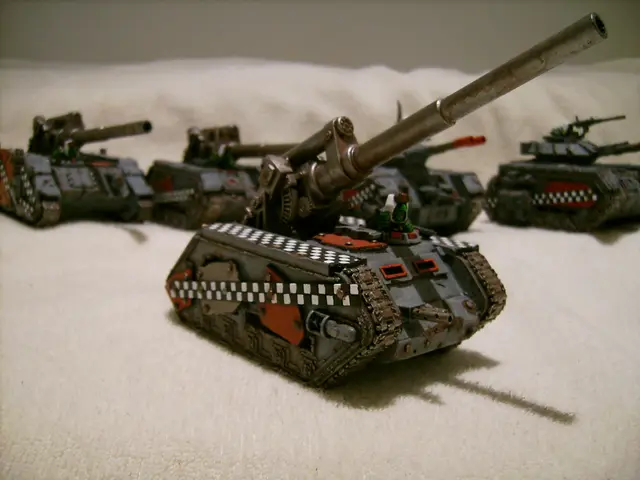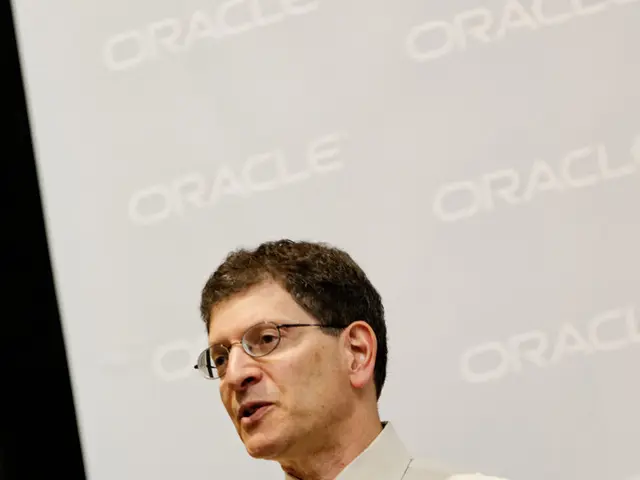Demand for skilled labor escalates in Europe's weapons manufacturing industries
Booming Demand for Skilled Workers in Europe's Arms Industry Amid Rising Global Tensions
Europe's arms sector is experiencing a surge in demand as a result of escalating geopolitical conflicts, particularly between Russia and Ukraine. However, this growth comes with a challenge: a severe shortage of skilled workers.
European defense companies are grappling with full order books and an urgent need for qualified workers, leading some to examine the struggling automotive industry for potential hires, while others establish their own vocational schools or offer high salaries to attract talent.
Germany's largest arms companies, including KNDS, Rheinmetall, and Thyssenkrupp Marine Systems, are seeking product developers, engineers, welders, and electronics technicians, among others. KNDS spokesman Gabriel Massoni explains, "We need very specific know-how that requires specialized skills, which are rare on the job market." The CEO of KNDS France, Nicolas Chamussy, notes the limits of wage increases to avoid becoming less competitive.
Rheinmetall, also expanding its operations, is in search of numerous positions, encountering a shortage of experts in the natural sciences and technical fields. Thyssenkrupp Marine Systems, after acquiring the insolvent MV Werft in Wismar, requires up to 1500 new employees. Despite attending trade fairs, the company finds a dearth of experts.
Italian arms giant Leonardo shares this assessment, attributing the lack of young talent to preferences for other industries. To combat this, some companies have started their own training programs, such as the Czech PBS Group, which trains its own employees at its vocational school.
Recruitment agencies like the Paris-based Headhunting Factory are encountering difficulties in finding suitable candidates, as potential applicants often lack formal resumes or resist headhunters' approaches, fearing potential scams.
The labor shortage has proved an opportunity for some companies, like the Czech ammunition and grenade manufacturer STV Group, which benefits from the deteriorating situation in the automotive industry. One such worker considering a switch from the struggling automotive sector to defense manufacturing is Emrullah Karaca, who worked for 25 years at Continental and is evaluating a move to Rheinmetall.
Sources: ntv.de, Michael Kahn, Christoph Steitz, and Dominique Patton, Reuters
Key points:
- Europe's arms industry is experiencing a labor shortage for skilled workers such as AI engineers, data scientists, welders, and mechanics.
- To address this gap, companies are employing strategies such as raising wages, actively poaching talent from other sectors, engaging with educational institutions, establishing in-house training schools, and leveraging the EU's Union of Skills strategy.
- The goal is to create a sustainable, skilled workforce that can meet the demands of Europe's growing defense industry amid increased military spending and geopolitical shifts.
- In response to the labor shortage in Europe's arms industry, some companies are looking beyond the traditional pool of applicants and examining struggling industries like the automotive sector for potential hires.
- The CEO of KNDS France acknowledges the limitations of wage increases to attract skilled workers, as the company seeks product developers, engineers, welders, and electronics technicians, among others.
- Recruitment agencies find it challenging to find suitable candidates for positions in Europe's arms industry, as potential applicants often lack formal resumes or are hesitant to work with headhunters due to concerns about potential scams.
- The labor shortage in Europe's arms industry is creating opportunities for some companies, like the Czech ammunition and grenade manufacturer STV Group, which benefits from the deteriorating situation in the automotive industry, leading workers such as Emrullah Karaca to consider a shift from the struggling automotive sector to defense manufacturing.






